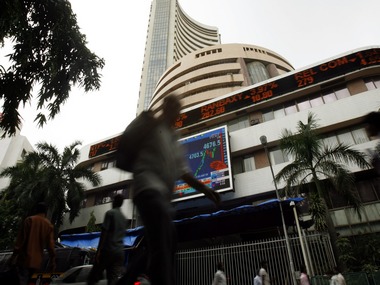With the NDA led by the BJP receiving a drubbing in the Bihar polls, the question that has come to the fore is whether the government will put the reform process on backburner, given the confidence boost the opposition has got from the thumping victory at the hustings.
Some foreign brokerages have opined that the loss in Bihar state elections could be a “stumbling block” to the government’s reform agenda. According to Barclays, the Bihar election verdict could also lead to “weakness” in the stock market, a PTI report said.
“We feel that today’s results - the BJP’s big defeat -could be a material sentiment dampener in Monday’s early trade as this might be perceived as an additional stumbling block to the central government’s reform agenda,” Barclays said in a research note on Sunday.
“Indian financial markets were cautious ahead of the election results, and a result against the BJP should lead to market weakness,” the report said further.
Local brokerages, too, have turned cautious following the BJP’s debacle, and fear renewed political polarisation in case of populist measures adopted by the ruling government.
“There are now fears as to how will the Union government will handle the Bihar results. Whether it turns populist. There will be renewed political polarisation, which could make things more difficult for the government, particularly in the Upper House. What now needs to be seen is how the Centre tackles this development with regard to key bills. Whether it calls for a joint session of Parliament or go through the process of negotiation, which could be slow,” The Telegraph report said quoting P. Phani Sekhar of Karvy Stock Broking.
Going a step ahead, Shankar Sharma, Chief Global Trading Strategist, First Global is of the view that the results will have a far-reaching implications and the BJP will fail to get majority in 2019 Lok Sabha elections.
“The market will start figuring out those outcomes and I think those are not looking good at all. Despite 282 seats, the government has not been able to push through a lot of its agenda in Parliament,” said Shankar Sharma.
“Based on this outcome and possibly that of UP in 2017, it is highly certain that the BJP would not get to 282 number in 2019. It might stop at 250, might stop at 240, might stop at 200,” added Sharma.
However, another local brokerage Ambit Capital sees little impact of the election loss on the market as the government anyway had failed to kickstart any major economic reforms in recent times.
“Whilst this marks the second state assembly election where the BJP was not able to form the State Government, from the perspective of the economy and of economic reform, the BJP’s hammering in Bihar should not have a major impact. This is largely because: (a) the BJP did not seem to have major economic reform on the anvil anyway; (b) GST is likely to remain the key Parliamentary reform that the BJP remains focussed on; (c) a rural stimulus was on the cards in any case; and (d) Modi’s three resets will continue to be the defining economic force that will play out in the near term,” Ambit Capital said in a report post the Bihar election verdict.
The report further said that post the Land Acquisition Act Amendment-related debacle (where the Rajya Sabha thwarted the BJP), the party seems to have pulled economic reform off the table in any case. Even outside, Parliament it is not obvious that the BJP is pursuing radical economic reform (eg. privatisation or a major fiscal pullback).
“Measures which the NDA political high command are politically sensible – for example a major expansion of the Direct Benefits Transfer Platform – are being pursued enthusiastically in any case. Hence it is not obvious to us that the Bihar verdict will force the BJP to course correct on the policy front,” it said.
However, industry bodies and rating agencies were guarded in their analysis of the BJP’s poll setback, and in fact ruled out any material impact seen on the economy and market.
“The BJP’s defeat in the Bihar state assembly election does not change our view on the medium-term economic outlook for India. The loss may complicate politics for the central government, but we don’t expect major implications on the economic front,” said global rating agency Fitch.
“The election results are not likely to impact decisions by foreign investors in other states and a big win for the BJP in Bihar would not have led to sufficient support in the Rajya Sabha anytime soon anyway. With continued opposition, the government will likely continue to try and pass legislation via ad hoc political deals, and if that does not work it may continue to resort to implementation of reforms at the state level. While the opposition to some big ticket reforms, most prominently the land acquisition bill and the GST, has been substantial, the government has gradually rolled out a large number of initiatives and there is no indication it would now change course,” Fitch said.
A chief economist at CARE Ratings also said the economic situation will not deteriorate on account of the Bihar elections result. This is because for two reasons.
First the economy is largely driven by private sector involvement which carries on independently of the government in power. Second, the government at the centre has done everything possible on the administrative side as well as through policies which can still largely go ahead irrespective of this outcome. Easing doing business or doing something on power, coal, telecom, steel etc. would carry on in the normal course and these are issues that matter.
)
)
)
)
)